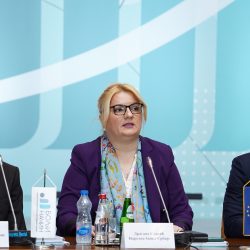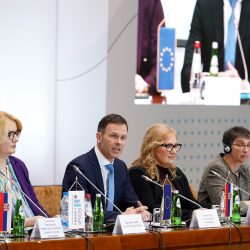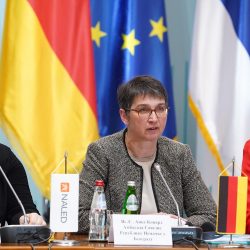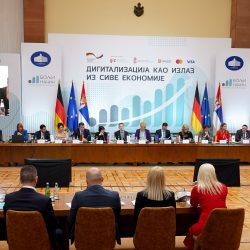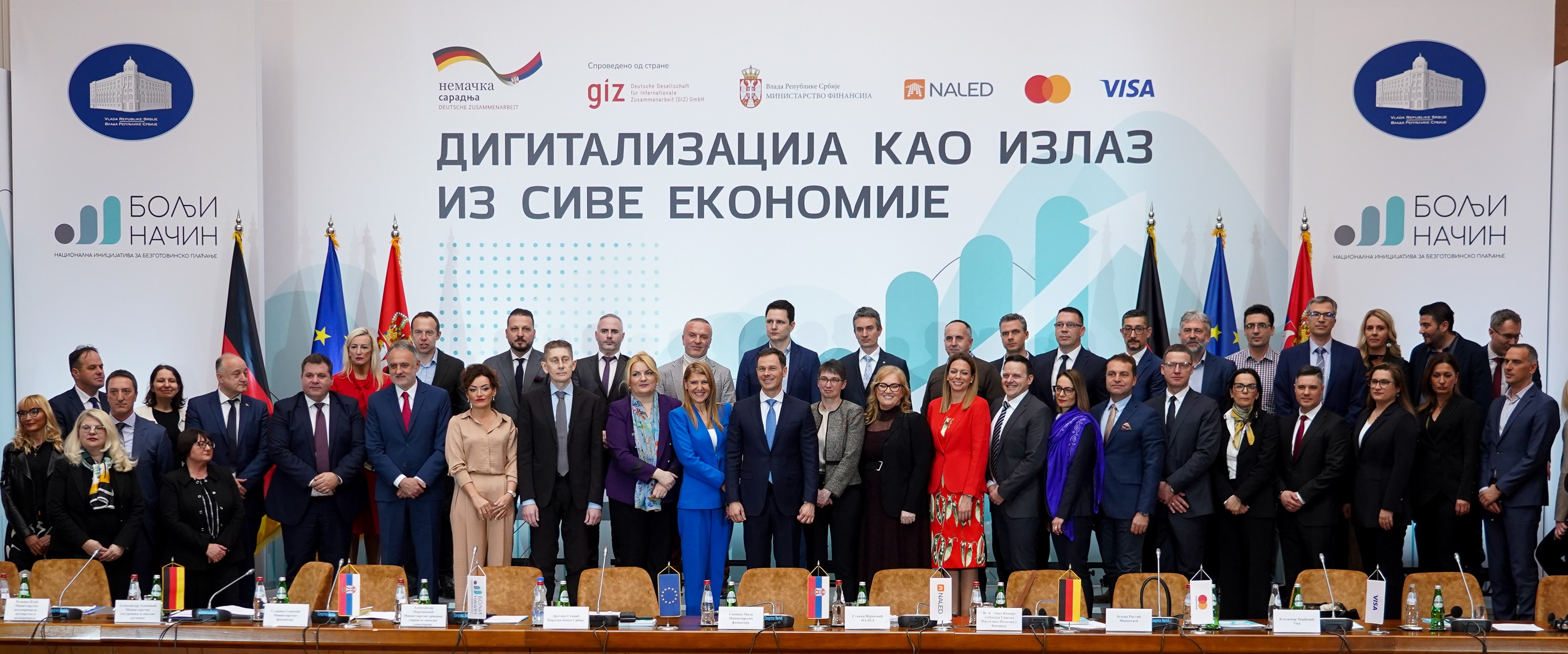
“Inspection services are an indispensable link in the fight against the grey economy. Improving the efficiency of inspections is one of the most important measures proposed under the National Programme for Suppression of the Grey Economy for the period 2023-2026, which was adopted by the Government of the Republic of Serbia”, the Minister of Public Administration and Local Self-Government, Aleksandar Martinović, PhD, has said at the 5th national conference titled “Digitization as a way out of grey economy”, in the organization of the Coordination Body for Combating Grey Economy of the Government of the Republic of Serbia and the National Initiative for Cashless Payments “A Better Way”.
Martinović has pointed out that the adoption of the Law on Inspection Supervision had significantly improved the planning and implementation of inspection supervision, which is now transparent and available for every inspection, and that the introduction of the single information system eInspector, under which 38 national inspections currently operate, had greatly facilitated the work of inspectors and improved the efficiency of inspections. He has also recalled the Contact Center of Republic Inspections, established in March 2020, through which citizens and economic entities can report irregularities.
“Since commencing with the operation of the Contact Centre,nearly 50,000 applications from citizens and economic entities have been received and processed. In the future, we will work on its integration with the eInspector software, which shall significantly shorten the time of processing requests and speed up the procedure, which will achieve greater user satisfaction with the service provided, and thus reduce the grey economy. Ministries must work on hiring new inspectors, albeit it is indeed a complex and long-term procedure. However, without a sufficient number of inspectors in the field, the chances of businesses moving into the grey zone are much higher,” Martinović has emphasized.
Comparing the number of inspectors who are currently active with the number envisaged under the Action Plan, the minister has pointed out that the results are not encouraging, and that at the moment there is a big problem with the outflow of employees who perform tasks of inspection supervision.
“The staffing of inspections ranges from 30% to 70%. There is very little interest, especially when it comes to experts in the fields of construction, transport, mining, because such profiles are in demand and are paid more in the private sectors, and I would also like to emphasize that the average age of inspectors in Serbia is 59 years and that, by the end of this year, more than 160 republic inspectors shall retire. However, there is a possibility to improve the position of inspectors on the normative level, with the joint work and effort of the ministries,” Martinović has concluded.
The conference was opened by the Deputy Prime Minister, Minister of Finance and Chairman of the Coordination Body for Combating Grey Economy, Siniša Mali, and the participants were addressed by the Vice-Governor at National Bank of Serbia, Dragana Stanić, the Vice President of NALED’s Managing Board, Stanka Pejanović, and the Ambassador of the Federal Republic of Germany to Serbia, Anke Konrad.
At the event, the key results of the joint fight against the grey economy in the past five years, as well as further priorities and the programme of the Government of the Republic of Serbia in this area, have been presented, and the first POS Support Programme for Micro and Small Enterprises and Institutions was officially launched.




